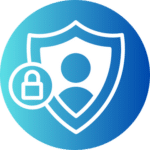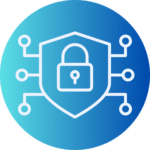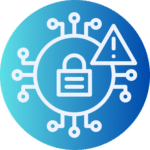Proactive Phishing Protection with Optery
Remove personal employee data, mitigate phishing risk

Remove personal employee data, mitigate phishing risk
Phishing attacks invariably rely on exposed personal data and are among the most common and damaging threats to organizations today. Recent findings from the Cybersecurity and Infrastructure Security Agency (CISA) and U.S. Coast Guard (USCG) report that spear-phishing was the second most common successful attack technique in their FY23 Risk and Vulnerability Assessment.
Optery helps organizations minimize this risk by removing employee data across hundreds of online data broker sites. In limiting attackers’ access to employee PII, Optery makes it harder for them to find their targets and create convincing pretexts for spear-phishing. This proactive approach strengthens your defenses against phishing by reducing the volume of email, text, and voice phishing attacks and the likelihood of successful social engineering attempts.
Reducing Phishing’s Threat to Business Security
With SOC 2 Type 2 certification, SSO, SCIM, and SAML integrations, Optery’s platform is built to integrate seamlessly into existing cybersecurity programs, helping protect your employee data and strengthen your phishing defenses. Phishing attacks exploit publicly available personal information. Data brokers make this info readily available through a simple Google search, and threat actors such as Scatter Swine harvest mobile phone numbers from data brokers that link phone numbers to employees at specific organizations. This PII enables them to:
- Impersonate executives, IT personnel, or trusted vendors to trick employees into clicking malicious links.
- Craft highly personalized messages, increasing the credibility of phishing emails and messages.
- Find their targets and bypass conventional spam filters and basic phishing defenses.
Removing employee PII from data brokers is critical for preventing phishing attacks against your organization.
Making Employee Data Part of Your Phishing Protection Strategy
Proactively Remove Exposed Employee Data with Optery
Optery directly addresses phishing risk at its source by finding and removing more exploitable employee PII than any other service.
Key Optery features include:

Automated Data Removal
Optery’s patented search technology identifies employee profiles across hundreds of data brokers and removes exposed PII efficiently. On average, Optery finds ~100 exposed profiles per user, including ~50 missed by other services.

Detailed Reporting and Proof of Removal
Optery is the only solution on the market that provides detailed exposure and removal reports, complete with before-and-after screenshots and links.

Continuous Monitoring and Re-Removal
Data brokers often repopulate profiles, making a one-time removal insufficient. Optery’s automated, monthly monitoring detects new exposures and submits repeat opt-out requests, providing ongoing protection for your organization.
Enhance Your Phishing Defense Strategy with Optery
Lower Volume and Success Rates for Social Engineering Attacks
When attackers have limited information, spear-phishing, smishing, and vishing attacks significantly decrease and are less likely to succeed.
Strengthen Overall Security Posture
Proactively minimizing PII exposure protects against today’s most common attack vectors, adding a critical preventative measure to your cybersecurity strategy.
With SOC 2 Type 2 certification, SSO, SCIM, and SAML integrations, Optery’s platform is built to integrate seamlessly into existing cybersecurity programs, helping protect your employee data and strengthen your phishing defenses.
See Optery in Action
Hear From Our Clients

Finance: Regional Bank CISO Prevents Phishing and Smishing with Optery
The CISO of a regional bank leveraged Optery to protect executives and long-term staff, minimize social engineering risk, and reduce spam, phishing, and smishing attempts.

Healthcare: Analytics CEO Shields His Employees from Spear Phishing Attacks with Optery
The CEO of a healthcare analytics company used Optery to prevent spear-phishing attacks, reduce cyber insurance premiums, and protect his tech staff from targeted attacks.

Executive Protection: Digital Protection Firm CEO Protects High-Profile Clients with Optery’s API
The CEO of a growing digital executive protection firm uses Optery’s API to protect his high-profile clients from being tracked, profiled, and targeted.